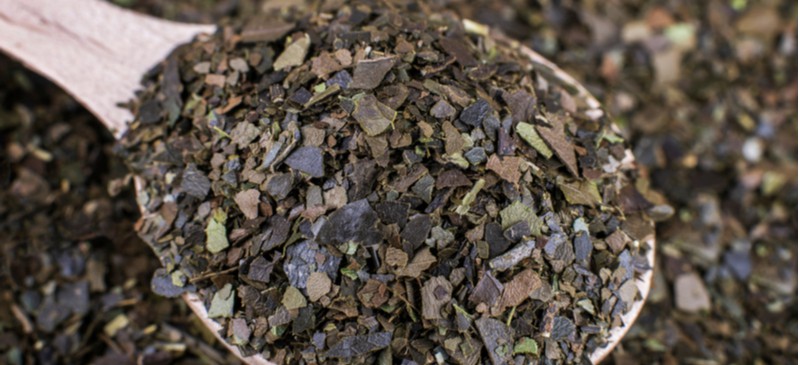This Dr. Axe content is medically reviewed or fact checked to ensure factually accurate information.
With strict editorial sourcing guidelines, we only link to academic research institutions, reputable media sites and, when research is available, medically peer-reviewed studies. Note that the numbers in parentheses (1, 2, etc.) are clickable links to these studies.
The information in our articles is NOT intended to replace a one-on-one relationship with a qualified health care professional and is not intended as medical advice.
This article is based on scientific evidence, written by experts and fact checked by our trained editorial staff. Note that the numbers in parentheses (1, 2, etc.) are clickable links to medically peer-reviewed studies.
Our team includes licensed nutritionists and dietitians, certified health education specialists, as well as certified strength and conditioning specialists, personal trainers and corrective exercise specialists. Our team aims to be not only thorough with its research, but also objective and unbiased.
The information in our articles is NOT intended to replace a one-on-one relationship with a qualified health care professional and is not intended as medical advice.
Guayusa: The Antioxidant-Rich Ecuadorian Herbal Tea You Should Try
September 18, 2020

If you’re looking to reduce your caffeine intake and are in need of some energizing alternatives to coffee, consider getting to know guayusa.
Like many other teas, guayusa tea does naturally contain some caffeine, although less than brewed coffee. In addition, it contains protective compounds, including certain antioxidants — such as polyphenol catechins, theobromine, B vitamins and more.
What Is Guayusa?
Guayusa (pronounced gwhy-YOU-sa) is an anti-inflammatory drink (also called an herbal infusion) that is produced from the leaves of a holly tree (Ilex guayus). It is native to the Amazon Rainforest of Ecuador.
Consumption of this drink, which is not technically a tea but is often called one, dates back an estimated 2,000 years+ in some Amazonian cultures.
While few studies have focused on guayusa compared to other teas, traditionally it was thought to act as a natural digestive tonic and a diuretic, as well as a supporter of fertility and vitality.
Is guayusa the same as yerba mate?
While similar to yerba mate, a popular energizing drink that’s native in South America, guayusa is made from the leaves of a different plant. The guayusa tree (Ilex guayusa) is considered to be a “cousin” of the yerba mate plant (Ilex paraguariensis).
The two share many similarities, including that they are naturally caffeinated, both come from rainforest holly trees and both contain other beneficial compounds.
One noticeable difference between the two beverages is the taste. Yerba mate is described as having a stronger bitter flavor, while guayusa has a smoother, more subtle taste.
Health Benefits
1. Can Lift Your Energy
While it contains caffeine, guayusa also comes packed with other nutrients that can help to mitigate caffeine side effects but still help you feel uplifting. Many describe its stimulating effects as being more gentle and less jittery than other caffeine sources, such as coffee.
While it can still be used to help prevent fatigue, it’s different than a strong coffee buzz due to its chemical composition. Guayusa contains stimulating “methyl xanthine alkaloids,” theophyline (which is found in green tea) and theobromine, all of which can give you a natural but-not-overwhelming lift in energy.
How much caffeine is in guayusa tea? The caffeine content in this beverage is estimated to be 66 milligrams per eight-ounce serving.
As a comparison, one eight-ounce serving of black tea has about 42 milligrams, and coffee has about 160 milligrams.
2. Full of Antioxidants
Guayusa leaves have been found to be a rich source of antioxidants as well as anti-inflammatory compounds, which can help fight oxidative stress and free radicals. It is even thought to contain a similar amount of antioxidants as green tea (some sources say even more), which is considered to be one of the top longevity-promoting beverages.
Studies have uncovered that antioxidants in the leaves include high levels of polyphenols/catechins, alkaloids, theobromine and other dimethylxanthines — as well as gallic acid, guanidine, isobutyric acid, ascorbic acid, L-theanine and some B vitamins.
Consuming some of these compounds has been associated with increased protection against inflammation and, therefore, related conditions, such as heart disease, diabetes and neurological issues.
In one study, 14 phenolic compounds were identified with guayusa leaves, including chlorogenic acid and quercetin, as well as high levels of five carotenoids. The study concluded, “In general, blanched guayusa retained the concentration of phenolic compounds and some carotenoids and similar antioxidant capacity as untreated green leaves.”
3. Can Help Improve Concentration and Focus
Because it’s a source of caffeine plus other health-promoting compounds, including antioxidants, guayusa can help promote cognitive health and mental performance. For this reason, you might find that it improves your attention span, focus and ability to learn, without leading to as much of a crash afterward compared to drinking coffee.
4. May Help Manage Your Appetite and Mood
While it depends on the person, caffeinated beverages can help keep hunger and cravings in check and have an uplifting, motivating effect on one’s mood.
There’s also some evidence suggesting that supplementing with guayusa extract may help support metabolic health and aid in maintaining normal blood sugar levels. Additionally, caffeinated beverages may help suppress appetite and aid in fat loss, which can be protective against obesity and related conditions, such as insulin resistance.
5. Sustainably Grown and Economically Beneficial
Today, guayusa is cultivated almost exclusively in the upper Amazonian region of Ecuador, where the Andes Mountains and the Amazon Rainforest meet. Because the tree grows best under the shaded canopy of the rainforest, it incentivizes farmers to protect the rainforest and plant more trees in order to profit from this crop.
Most often guayusa is grown organically on small family farms. This helps provide income for Ecuadorians.
Many farms have been passed down from generation to generation.
The cultivation of these trees actually has a positive, regenerative effect on the local ecosystem and the rainforest. According to Stash Tea website, “guayusa can be grown with other foods, fruits, timber and medicinal plants to create biodiverse and ecologically healthy agricultural plots that allow local farmers to thrive and generate a sustainable livelihood for the community.”
Growing and selling guayusa is also a sustainable and ecological alternative to working in the the oil or timber industries that can contribute to deforestation in the Amazon.
Risks and Side Effects
Consuming too much guayusa can lead to the same side effects as consuming too much coffee, tea or caffeinated energy drinks. That’s because it contains caffeine plus related compounds, like theobromine and theophyline, that can be too stimulating for some people.
If you find that you don’t tolerate it well — for example, because it gives you a stomach ache, jitters or makes your heart beat faster — then you can get many of the benefits from other anti-inflammatory teas, such as herbal teas or green and black teas in small amounts (which are are brewed from leaves of the Camellia sinensis plant).
How to Make Guayusa Tea
What does guayusa taste like? Most people find that it has a naturally smooth taste that isn’t very bitter.
Part of the reason it lacks bitterness is because it doesn’t contain tannins, which are found in some other teas. It’s also described as having a rich and earthy aroma and slightly sweet finish, even though it doesn’t contain sugar.
When purchasing guayusa, whether online or in health food stores, look for bright green, dried, whole leaves that have no stems attached. Check for the correct species name (Ilex guayusa) to ensure you’re getting the real thing.
One of the most popular brands of dried guayusa leaves is Runa, which is now sold in places such as Whole Foods as well as many other large supermarkets.
Here’s how to brew guayusa:
- Boil fresh water, and then pour it onto the leaves in a cup.
- Let it steep for 4–7 minutes. The longer it brews the deeper the color and flavor will be.
- Use about 2 grams of loose leaves for every 8 ounces of guayusa you want to make.
- Serve either cold or warm, such as with lemon and raw honey or over ice to make iced tea.
Other FAQs
What other forms is guayusa available in? In addition to brewing the leaves to make tea, you can also consume guayusa in powder and extract forms.
These are sometimes added to nootropic supplements, energy drinks, green powdered drinks or dried tea blends.
Can you smoke guayusa? While traditionally some cultures smoked guayusa along with other similar leaves, today it isn’t normally used in this way.
Instead it’s brewed, taken as a supplement, or mixed into other drinks and foods, such as smoothies, yogurt, etc.
Conclusion
- What is guayusa (Ilex guayusa)? It’s a beverage/herbal infusion produced from the leaves of a holly tree native to the Amazon Rainforest of Ecuador.
- Medicinal benefits of guayusa (which is technically not a tea but often called one) include that it’s hydrating, contains caffeine, and supplies you with antioxidants, vitamins and even amino acids.
- Guayusa vs. yerba mate, what’s the difference? Yerba mate, a popular caffeinated tea, comes from a plant that is a cousin to the guayusa tree, however the two have a different taste. (Yerba mate is more bitter.)








